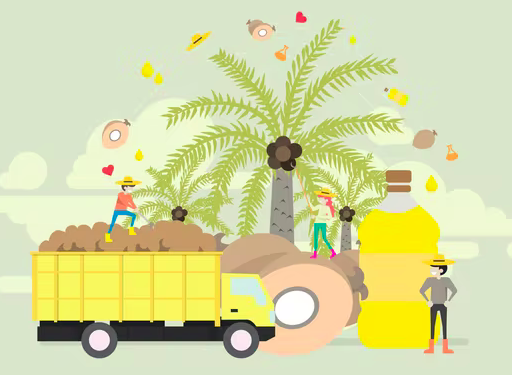Popular Science: Sustainable Nutrition Scientific Board/2 – impacts and trade-offs in vegetable oil production
- 30 December 2021
- Posted by: Competere
- Category: Sustainable Nutrition

Article published by Popular Science
Humanity is facing a “triple dilemma”: producing more food, ensure its nutritional value, and contain natural resources depletion threatening the environment and biodiversity. Complex problems such as this can hardly be solved in isolation. It has become clear that a new approach is needed to marry food security, healthy nutrition, and the protection of ecosystems and means of subsistence in view of the 2030 deadline set by the United Nations to achieve the Sustainable Development Goals (SDGs).
In a recent article, we introduced the material presented by the Sustainable Nutrition Scientific Board (SNSB) during the symposium “Sustainable Nutrition: satisfying the needs of the future” organized by the Congress of the International Union for the Conservation of Nature (IUCN).
This international group of leading experts from a diverse but complementary range of specialty fields was created in 2020 with the objective of developing a new research branch defined by a holistic methodological approach supported by Big Data and artificial intelligence.
The case of vegetable oils
SNSB’s first research project – scheduled to conclude in mid-2022 – has the aim of analyzing the case of vegetable oils and their impact on human nutrition and on the planet.
Why vegetable oils? According to the SNSB this is a complex and pressing issue because fats are a key source of energy and a fundamental nutrient in a balanced diet. We need to produce them in a safe, effective, and sustainable fashion to be able to satisfy global demand. To that end, the Board will examine guidelines regarding the consumption of vegetable oils and the link between saturated fats and cardiovascular risks, looking to widen current knowledge on oxidative stress markers to increase oils’ safety and quality while mapping out their social and environmental impacts.
Professor Erik Meijaard, Co-chair of the IUCN Task Force for vegetable oils, is working on gathering and analyzing accurate data on the impact of oil cultivations. Biodiversity research has so far focused mostly on perennial crops – oil palm, coconut, and olive trees – but data is lacking on seasonal crops like soy, rapeseed, and sunflower. Databases on endangered species remain incomplete. The expert believes that we are currently hearing a story half-told, that caused mediatic frenzies and smear campaigns that have targeted, above all, palm oil. Objectively and correctly inform decision-makers and consumers requires looking at a much bigger picture.
The SNSB will map out the impacts of all key vegetable oils, which will allow for a nuanced evaluation that will factor in cultivation areas, output, resource consumption, effects on the ecosystem, as well as socio-economic costs and benefits, and the interchangeability of oils for different uses.
The preliminary data presented by professor Meijaard confirm that palm oil is one of the most efficient resources of fats. Today it is the world’s fourth largest source of calories and it accounts for 35% of all vegetable oils produced, while taking up only 10% of global oil crops. In short, it produces a valuable nutrient with a limited consumption of natural resources.
If we wish to satisfy the growing demand for vegetable oils – which is estimated to reach 310 million tons by 2050 compared to today’s 165 – by substituting palm oil with other sources, we would witness an increase of about 200 hectares in the total amount of cultivated lands – a size about 7 times that of Italy – and an increase in pressure on forests and biodiversity.
Meijaard also pointed out that a ban on palm oil in Europe would have a minimal impact on deforestation, while potentially proving counterproductive by rerouting trade toward Chinese and Indian markets. Furthermore, Europe would jeopardize its role as a promoter of the ecological transformation of the entire supply chain.
Oil palm is clearly a strategic commodity, often at the center of controversies linked to it environmental and social footprint, despite it being proven that a sustainable supply chain management can produce it in a way that is efficient as well as respectful of the environment and the communities involved. It is therefore necessary to provide a balanced evaluation of the environmental and socio-economic impact of all vegetable oils, completing the mapping and analysis of all oil crops, so as to reach coherent policy recommendations in line with sustainable development and nutrition goals.
That of vegetable oils is only an example: agriculture and sustainable nutrition require a balancing act between the logic of environmental preservation and that of social and economic dynamics. All while keeping in mind that food habits and traditions vary considerably across the planet.

